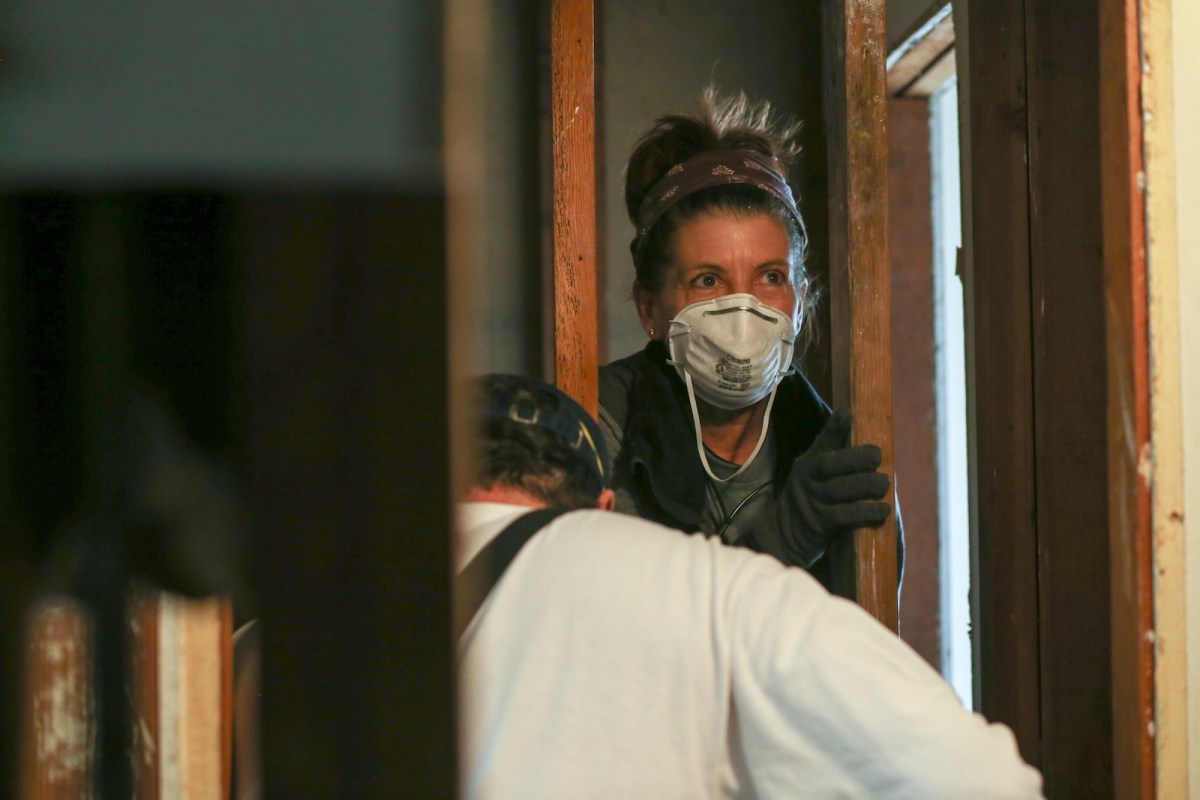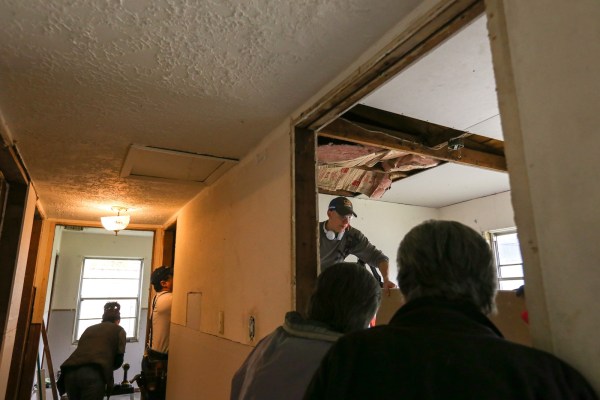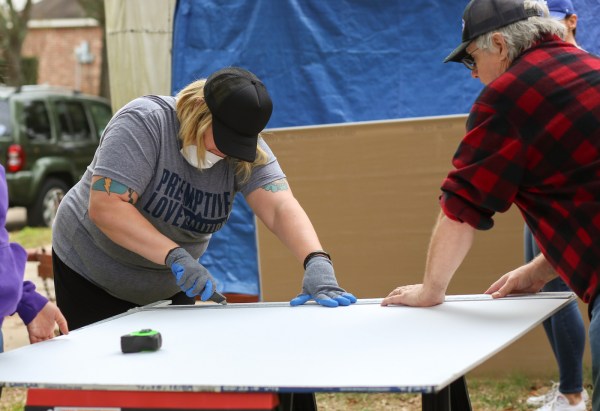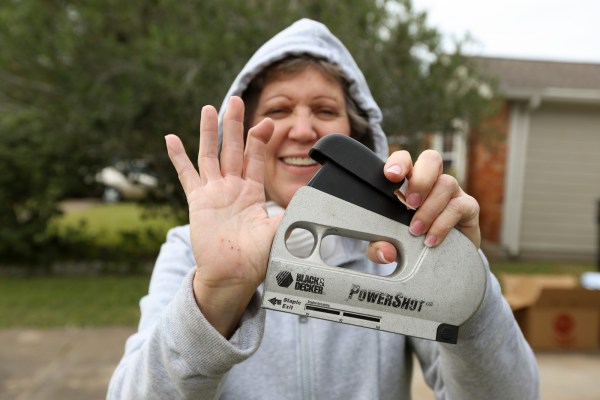Preemptive love isn’t just for the Middle East. It isn’t just for war zones. It can be lived out everyday and everywhere by everyone.
Last weekend 50+ volunteers from all over the country volunteered to rebuild homes in Houston. It was proof that anything can be done with preemptive love—even construction. Volunteers flew from 13 states and drove from all over Texas to hang sheetrock, swing hammers, and put in long days of manual labor for those affected by Hurricane Harvey.
But they did so much more than rebuild houses… they went out of their way to love.
Our volunteers didn’t just fix up six houses in four days. They didn’t just save each homeowner between $15,000 and $20,000—money these families don’t have. They didn’t just help families move home in time for Christmas. And they didn’t just rebuild lives, families, and futures.
They unmade violence, loved across enemy lines, moved towards the “other” and waged peace. This weekend, our volunteers lived preemptive love. They were preemptive love.
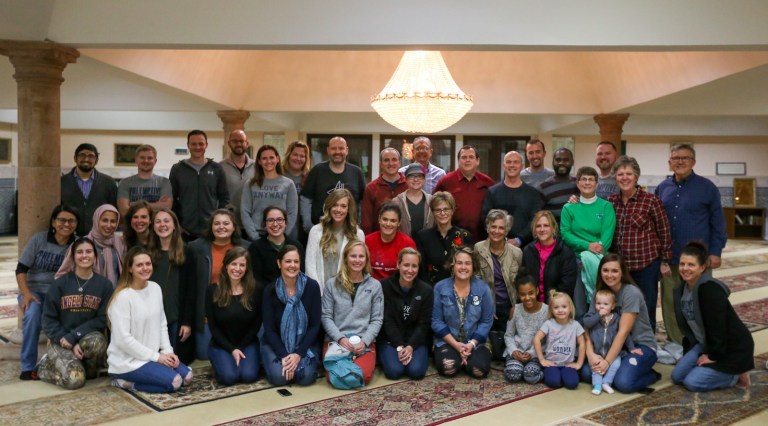
We wanted to give you a glimpse into what that looked like on this trip…
Our volunteers chose to love anyway. At every turn.
Even though they didn’t have any reason to love people they’d never met, our volunteers loved them anyway. They chose to love anyway when we asked them to come help two weeks before Christmas, with very little notice. They chose to love anyway when we took them to a local mosque and asked them to listen and learn from those who are different from them. They chose to love anyway when we went to a low-income neighborhood after dark and asked them to make friends with people who didn’t speak their language. They chose to love anyway as they pulled poorly-aimed staples out of their hands and coughed up drywall dust. And chose to love anyway at night, when half the people in the room where they slept snored like a chainsaw.
Their reward for all that preemptive love was watching violence unmade right before their eyes. Not just the violence of a hurricane, but also the violence of illness and prejudice. Our volunteers built friendships and created a more inclusive love where there used to be “otherness” and division.
In the span of four days, they gained the confidence to go and love where they live because they experienced how it can change us and the world around us.
Our volunteers showed up even though it’s rarely convenient and almost never easy.
For nearly half our volunteers, showing up in Houston meant flying during the busiest (and most expensive) time of year with very little notice. It meant leaving their families during Christmas time, using vacation days, sick days, and airline miles.
The majority of our volunteers were women, and this trip meant traveling alone, leaving children, and stepping into the unknown by themselves. It meant signing up to hang sheetrock when they had no experience, trusting we would teach them like we said we would. It was a sacrifice. But they showed up.
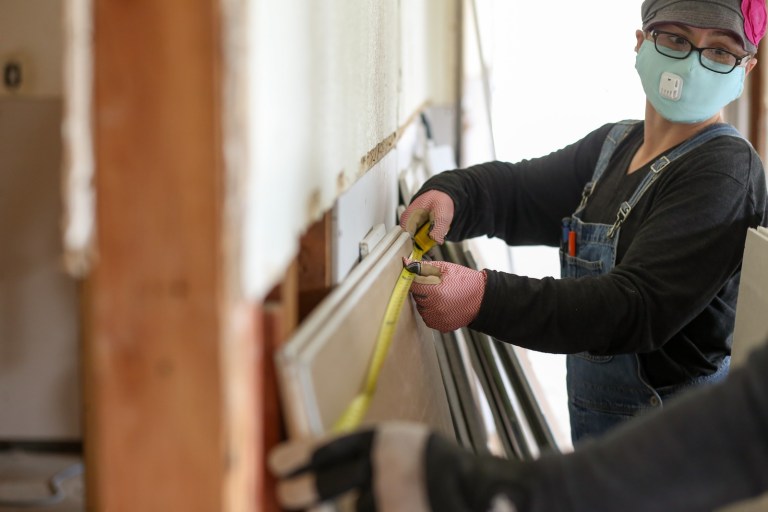
And in return, they got to love and be loved by the people who homes they were fixing—cry with them, laugh with them, and see the change in their demeanor as their houses were put back together. It’s amazing how much hope these families gained with each piece of sheetrock screwed into place.
“This isn’t just sheetrock.
To us, this is so much more than sheetrock.”
—Patrick (one of the homeowners)—
Because our volunteers showed up, they got to unmake violence and remake the world for these families.
Finally, our volunteers got out of the way, allowing the families we served to own their future.
Change is only sustainable if people can do this. We haven’t really helped anyone if they go back to needing help after we leave. 
In Houston, this reality hit home when one of the families we’ve helped asked if they could provide dinner for our entire group of volunteers, partners, and staff—more than 60 people. We were tempted to refuse, to say it was too much. But we realized that this was their way of saying thank you with dignity. To stand on their own two feet and serve us, instead of always being the ones saying “thank you.”
To refuse them would have been to retain our place of power as the giver. It would be the opposite of empowerment.
So we showed up with our crew and ate some of the best Mexican food we’ve ever had. We thanked them profusely, let them serve us, and asked for a tour of their new home. We were equals. Friends. Full of mutual respect.
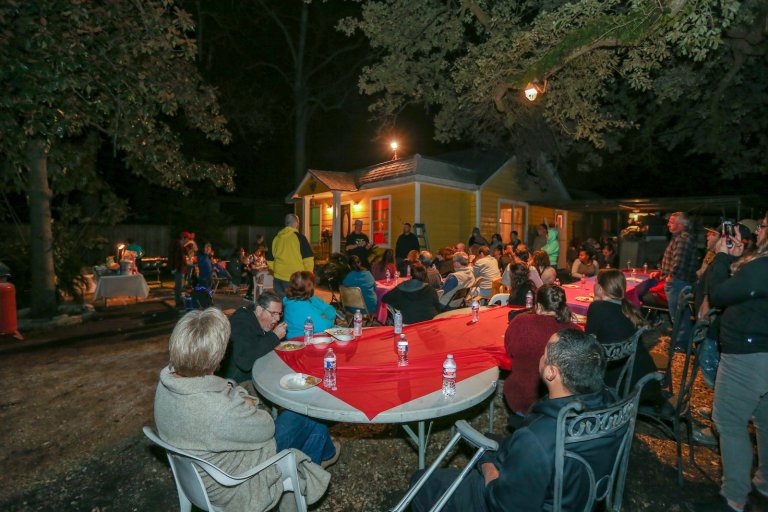
That family moved back in yesterday—with new floors, a new kitchen, and fresh paint. Their kids will celebrate Christmas at home.The parents will go back to being themselves, instead of being victims of a hurricane. And we’ll move forward with them as friends.
Because this isn’t charity. This is relationship.

We are deeply grateful to our volunteers, partners, and new friends for letting us be a part of their life. We are grateful to all of you who’ve given to make this work possible. We’ve learned so much from you, and we are eternally in your debt for all the love you’ve shown to us and each other.
From our team to all of you: we are inspired, encouraged and challenged by the way you embraced the concept of preemptive love this weekend. And we are forever changed by getting to know you.
Thank you.


